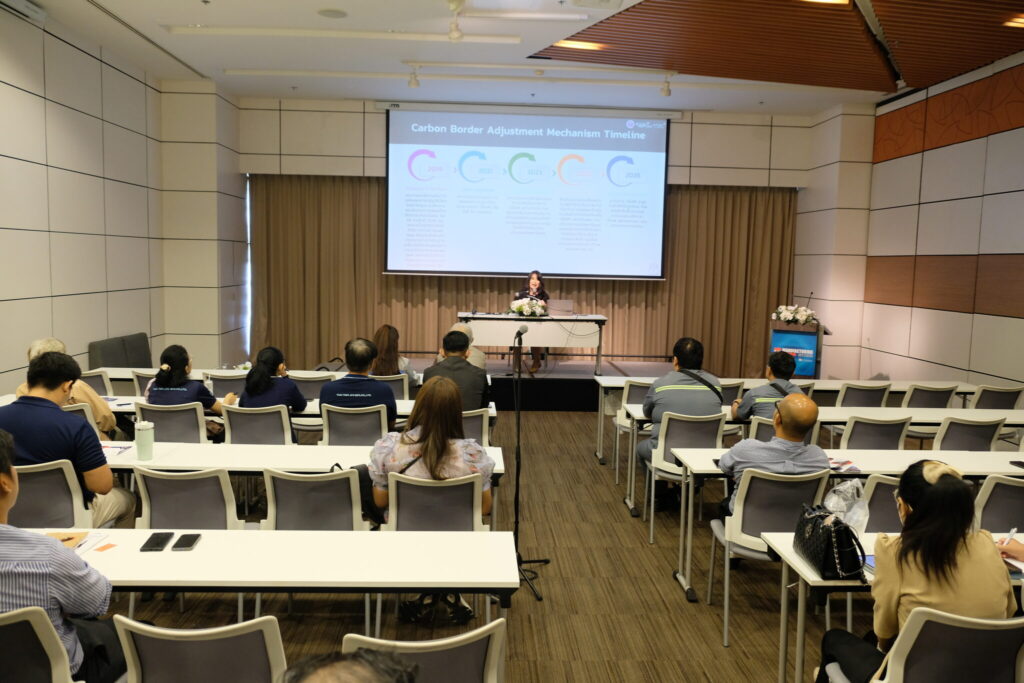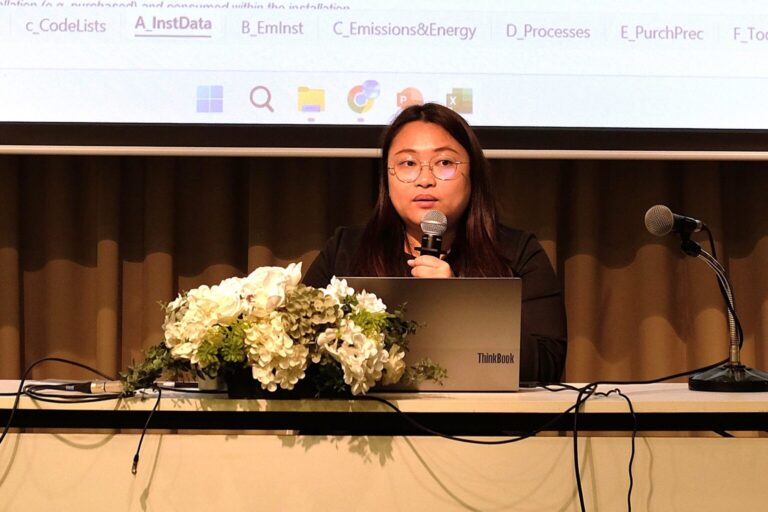
June 19, 2025
At BITEC, Bangna, Bangkok
During Manufacturing Expo 2025, the National Metal and Materials Technology Center (MTEC), NSTDA, hosted a seminar titled “Understanding and Preparing for CBAM: Data Readiness for Exporting to the EU.” The event aimed to support Thai businesses in getting ready for the European Union’s forthcoming full implementation of the Carbon Border Adjustment Mechanism (CBAM).
The seminar featured expert speakers from the Technology and Informatics Institute for Sustainability (TIIS), under MTEC–NSTDA, including Ms. Wanwisa Thanangkano and Ms. Natsuda Yokchoo, who shared in-depth insights into CBAM and best practices for data preparation. They emphasized that CBAM forms a key part of the European Green Deal and the EU’s “Fit for 55” initiative, which seeks to cut greenhouse gas emissions, prevent carbon leakage, and foster fair competition across industries within the European Union.
The first phase of CBAM covers selected products including iron and steel, aluminum, cement, fertilizers, hydrogen, and electricity. Exporters are advised to carefully verify the CN Code of their products, as CBAM reporting requirements do not appy uniformly across all codes in these categories. Speakers also noted that the scope of CBAM is likely to broaden in future phases to include sectors ceramics and glass.


CBAM is currently in its Transitional Period, which runs from October 1, 2023, to December 31, 2025. During this phase, exporters are only required to submit quarterly reports detailing import data and associated greenhouse gas emissions, with no carbon costs incurred. The Definitive Period, initially scheduled to begin on January 1, 2026, is now expected to be postponed to January 1, 2027. Under this phase, carbon costs will be applied, and reporting will shift to an annual format, with submissions due by May 31- a deadline that may be extended to October. Exporters whose annual shipment volumes fall below 50 tons will be exempt from the CBAM requirement.
The calculation of Specific Embedded Emissions focuses exclusively on direct emissions from fuel combustion and production processes, along with indirect emissions from electricity and heat consumption. This approach differs from the broader methodologies used for calculating Product Carbon Footprint (CFP) or Organizational Carbon Footprint (CFO), which, if directly applied, may result in overstated emission values and place exporters at a disadvantage.
To comply with CBAM requirements, exporters must purchase CBAM Certificates, each corresponding to one metric ton of emissions exceeding the permissible threshold. The certificate price will reflect the weekly average closing rate of allowances traded under the EU Emissions Trading System (EU ETS), which fluctuates similarly to stock prices. Additionally, during the Definitive Period, all submitted data must be verified by an accredited verifier.

The European Union provides the CBAM Communication Template, an essential Excel-based tool for data entry and reporting. Exporters must ensure they are using the latest version, currently 2.1.1. In cases where actual supplier data is unavailable, default values may be used; however, these figures are intentionally set higher than typical benchmarks to incentivize exporters to obtain accurate upstream emission data.
MTEC–NSTDA stands ready to assist Thai exporters with expert guidance and insights to help them navigate CBAM compliance effectively. This proactive preparation is crucial for unlocking global market access for low-carbon Thai products.
